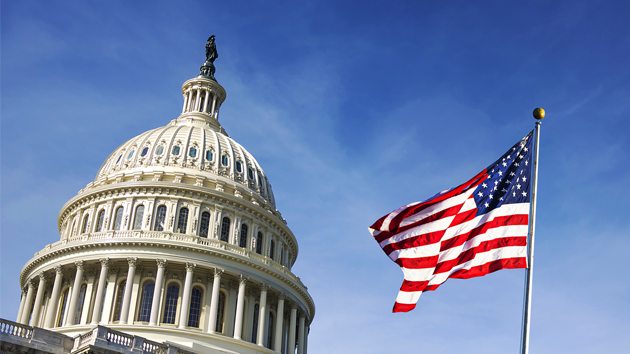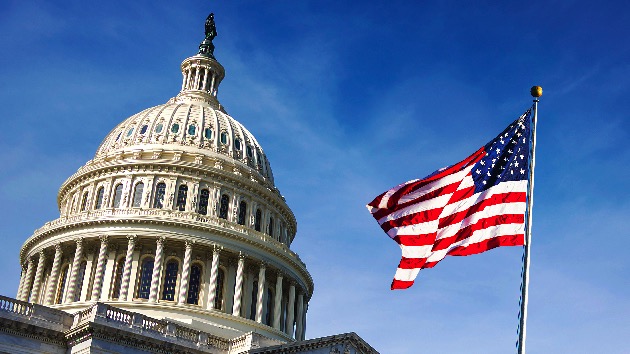
(NEW YORK) — For the next two weeks, governments around the world will convene for a highly anticipated summit on climate change that has been billed as the “last best chance” to meet the goals of the Paris Agreement and prevent the worsening effects of climate change.
Here’s how to make sense of all the news around the COP26 summit.
What is the climate summit?
The climate summit in Glasgow is called COP26, which stands for the 26th “Conference of the Parties” and represents a gathering of all the countries signed on to the U.N. Framework Convention on Climate Change and the Paris Climate Agreement.
The group meets every year to discuss progress on the fight against climate change and negotiate how to fulfill the terms of climate agreements.
Last year’s in-person meeting was delayed due to the COVID-19 pandemic so COP26 will be the first time countries have met since the U.N.’s latest climate science report issued a dire warning that the impacts of climate change are getting more severe and that time is running out to meet the Paris Agreement goal of limiting warming to 1.5 degrees Celsius.
COP26 President Alok Sharma said the pressure is on world leaders to ramp up their ambition to tackle the climate crisis at the summit.
“We still have some of the most difficult questions to answer. And we’re effectively in the last half hour of the exam,” he told reporters at a press conference organized by Covering Climate Now, an organization that collaborates with journalists and newsrooms on climate coverage.
Who will be there?
President Joe Biden and more than 100 world leaders will speak in the first two days of the summit to lay out their countries’ plans to reduce emissions and possibly announce new goals or commitments on climate issues.
But some important leaders from countries that contribute the most global greenhouse gas emissions like President Xi Jinping of China and Russian President Vladimir Putin are not expected to attend, citing concerns about COVID-19.
Influential figures like former President Barack Obama and the Duke and Duchess of Cambridge are also expected to attend to discuss the importance of taking action to limit the impacts of climate change. Climate activists like Swedish teenager Greta Thunberg are expected to lead large protests outside the official venue, pressuring world leaders to do more.
After the high-profile remarks to start the summit, other officials and negotiators from each country will hammer out technical documents detailing their agreements on climate policy and higher-ranking officials like Special Presidential Envoy for Climate John Kerry will meet with their counterparts to try to negotiate any sticking points.
What’s on the agenda?
Negotiators for this year’s climate summit will face questions about how to limit the impact of climate change by reducing greenhouse gas emissions, as well as how to help countries adapt to climate change in parts of the world where the effects are getting more severe.
The most critical item on the agenda for the climate summit is increasing nearly every country’s commitments to decreasing climate-warming emissions as quickly as possible. Even with current promises to reduce emissions in line with the Paris Agreement, the U.N. says the world is set to miss that goal to limit warming to 1.5 degrees Celsius.
The latest U.N. analysis says current commitments put the world on track for 2.1 to 2.7 degrees Celsius of warming, which would trigger more dangerous impacts of climate change like worsening severe weather and drought conditions that could start to hamper food production in parts of the world or make it more difficult for communities to survive.
“The time has passed for diplomatic niceties,” U.N. Secretary General Antonio Guterres said at a U.N. meeting on climate action this week.
“If governments — especially G-20 governments — do not stand up and lead this effort, we are headed for terrible human suffering,” he added.
In addition to ramping up efforts to prevent climate change from getting worse, negotiators will also confront questions about how to deal with impacts of climate change that are already being felt and how to support vulnerable countries struggling with changes like worsening storms and sea-level rise.
The Paris Agreement promised $100 billion a year in financial support for developing countries to combat climate change, but wealthier countries expected to contribute the most to that goal have not followed through, so negotiators will need to come up with a plan to meet that goal as well as discuss how much to increase it going forward as the impacts of climate change continue to worsen. That funding is meant to both help poorer countries build renewable energy infrastructure to avoid expanding fossil fuel use and make changes to adapt.
But representatives of those countries say even that isn’t enough.
Pelenise Alofa, national coordinator for the Climate Action Network in Kiribati, said COP26 will be important for the future of her island nation and the conversation about climate finance should include compensating countries experiencing effects of climate change for helping residents relocate or recover from worsening or more frequent severe storms.
Alofa said Kiribati and other island nations face an existential threat from climate change as sea-level rise and worsening tropical storms threaten their ability to live and produce food.
“As someone living in the islands in Kiribati, loss and damage from climate change is now a permanent feature of our lives. It is not about a one-time event or disaster. It is about rising sea levels that threaten to totally swallow our homes,” she told reporters in a briefing.
What does success look like?
The U.N. secretary general has said there is a “high risk of failure” from COP26, but there is not a single outcome that will solve all the challenges that come with the global climate crisis.
Experts say they’ll be watching to see if the Glasgow negotiations make tangible progress toward the goals of the Paris Agreement, including watching whether countries like China increase their commitments to reducing greenhouse gas emissions and burning fossil fuels, and if parties are able to agree on steps that can lead to real, measurable results.
But ultimately, even a successful COP26 will still be more of a step in the right direction than a final solution to the climate crisis.
“We have to have significantly turned the corner by next year or the year after or else we have no shot of keeping 1.5 [degrees Celsius] alive,” Jake Schmidt, senior director of the international climate program from the Natural Resources Defense Council, told ABC News.
Copyright © 2021, ABC Audio. All rights reserved.









